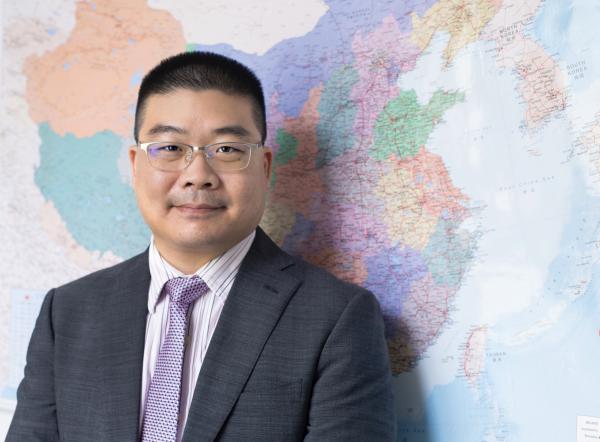LRCCS Noon Lecture Series | How Hedging Made US-China Tensions Worse: Order, Strategic Competition, and Aggregated Security Dilemmas in Asia and the Pacific
Ja Ian Chong, Associate Professor of Political Science, National University of Singapore
States in Asia and the Pacific have been talking about “hedging” and “not choosing sides” between the United States and China since the 1990s. Their aim was to moderate potential tensions between Washington and Beijing and promote cooperation, but this has not appeared to work. Instead, these disparate efforts to find a middle way between the two major powers resulted in greater levels of uncertain that have exacerbated security dilemma dynamics between the United States and China and created greater incentives for rivalry rather than cooperation.
Chong Ja Ian is an Associate Professor of political science at the National University of Singapore. He received his PhD from Princeton University in 2008 and previously taught at the Hong Kong University of Science and Technology. His research covers the intersection of international and domestic politics, with a focus on the externalities of major power competition, nationalism, regional order and security, contentious politics, and state formation. He works on US-China relations, security and order in Northeast and Southeast Asia, cross-strait relations, and Taiwan politics. Chong is author of "External Intervention and the Politics of State Formation: China, Indonesia, Thailand, 1893-1952" (Cambridge, 2012), a recipient of the 2013 International Security Studies Section Book Award from the International Studies Association. His publications appear in the China Quarterly, European Journal of International Relations, International Security, Security Studies, and other journals. At the Harvard-Yenching Institute, Chong will examine how non-leading state behavior collectively intensifies major power rivalries, paying particular attention to the US-China relationship. He has concurrent projects investigating how states react to sanctions on third parties by trade partners and the characteristics of foreign influence operations.
If you are a person with a disability who requires an accommodation to attend this event, please reach out to us at least 2 weeks in advance of this event. Please be aware that advance notice is necessary as some accommodations may require more time for the university to arrange.
Chong Ja Ian is an Associate Professor of political science at the National University of Singapore. He received his PhD from Princeton University in 2008 and previously taught at the Hong Kong University of Science and Technology. His research covers the intersection of international and domestic politics, with a focus on the externalities of major power competition, nationalism, regional order and security, contentious politics, and state formation. He works on US-China relations, security and order in Northeast and Southeast Asia, cross-strait relations, and Taiwan politics. Chong is author of "External Intervention and the Politics of State Formation: China, Indonesia, Thailand, 1893-1952" (Cambridge, 2012), a recipient of the 2013 International Security Studies Section Book Award from the International Studies Association. His publications appear in the China Quarterly, European Journal of International Relations, International Security, Security Studies, and other journals. At the Harvard-Yenching Institute, Chong will examine how non-leading state behavior collectively intensifies major power rivalries, paying particular attention to the US-China relationship. He has concurrent projects investigating how states react to sanctions on third parties by trade partners and the characteristics of foreign influence operations.
If you are a person with a disability who requires an accommodation to attend this event, please reach out to us at least 2 weeks in advance of this event. Please be aware that advance notice is necessary as some accommodations may require more time for the university to arrange.
| Building: | Weiser Hall |
|---|---|
| Event Type: | Lecture / Discussion |
| Tags: | Asia, Chinese Studies, Politics |
| Source: | Happening @ Michigan from Lieberthal-Rogel Center for Chinese Studies, International Institute, Asian Languages and Cultures |


